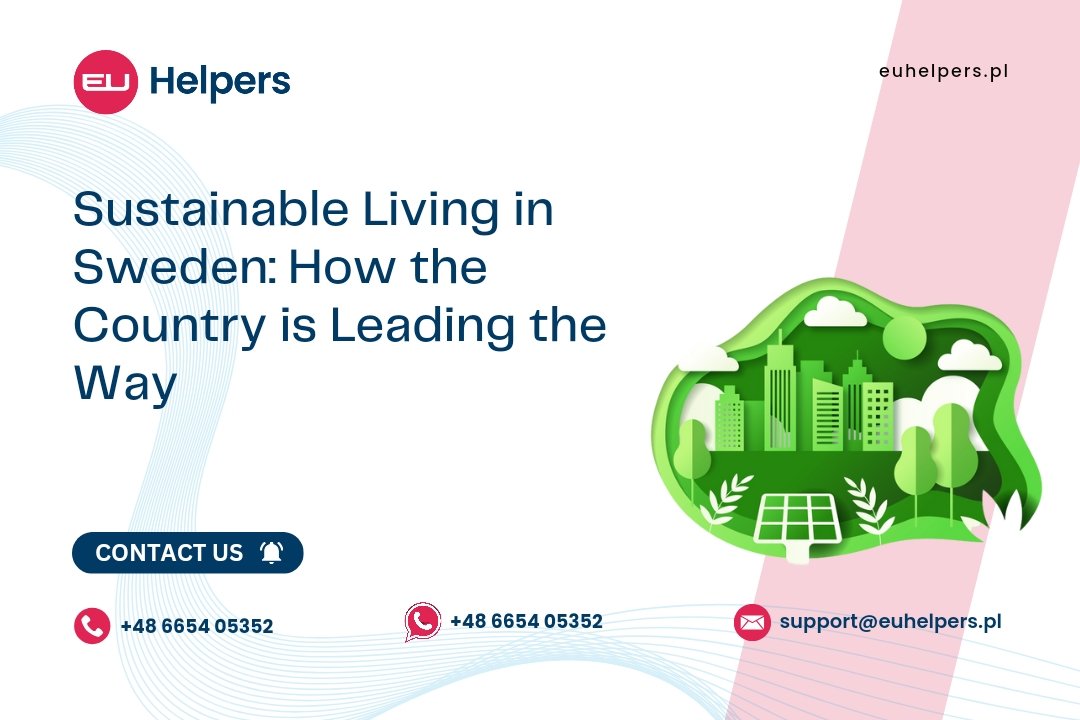Sweden is often hailed as a global leader in sustainability, with a strong commitment to environmental protection and innovative practices. Here's an in-depth look at how Sweden is setting the standard for sustainable living.
1. Renewable Energy Initiatives
Sweden is at the forefront of renewable energy adoption. Nearly 54% of the country’s energy comes from renewable sources, primarily hydropower and wind energy. The Swedish government has set an ambitious goal to become carbon neutral by 2045. Key initiatives include:
- Hydropower: Sweden’s vast network of rivers and lakes is harnessed to generate hydroelectric power, accounting for around 40% of the nation’s electricity.
- Wind Power: Sweden has invested heavily in wind farms, particularly in coastal and offshore areas. The Markbygden Wind Farm, one of the largest in Europe, exemplifies this commitment.
2. Eco-Friendly Urban Planning
Swedish cities are designed with sustainability in mind, incorporating green spaces, efficient public transportation, and energy-efficient buildings. Notable examples include:
- Stockholm's Hammarby Sjöstad: This district is a model for sustainable urban development, featuring eco-friendly housing, extensive recycling systems, and renewable energy use.
- Malmö's Western Harbour: Known for its Turning Torso skyscraper, this area uses 100% renewable energy, including wind, solar, and biogas.
3. Innovative Waste Management
Sweden is renowned for its effective waste management system, which emphasizes recycling and waste-to-energy conversion. The country recycles nearly 99% of its household waste. Key components include:
- Recycling Programs: Comprehensive recycling programs are available throughout the country, with residents sorting their waste into various categories.
- Waste-to-Energy Plants: Sweden incinerates waste to generate energy, reducing landfill use and providing heating for thousands of homes.
4. Sustainable Transportation
Sweden promotes sustainable transportation through investments in public transit, cycling infrastructure, and electric vehicles (EVs). Key developments include:
- Public Transport: Cities like Stockholm and Gothenburg boast extensive public transportation networks, including buses, trams, and trains powered by renewable energy.
- Cycling Infrastructure: Sweden has a strong cycling culture, with dedicated bike lanes and bike-sharing programs in major cities.
- Electric Vehicles: The government offers incentives for EV purchases, and charging stations are widely available, supporting the transition to electric mobility.
5. Green Innovation and Technology
Sweden is a hub for green technology and innovation, with numerous startups and companies dedicated to sustainable solutions. Noteworthy initiatives include:
- IKEA’s Sustainability Efforts: The Swedish furniture giant is committed to becoming a circular and climate-positive business by 2030, using sustainable materials and renewable energy.
- Climeon: A Swedish company specializing in converting low-temperature heat into clean electricity, showcasing the country’s commitment to innovative energy solutions.
6. Community Involvement and Education
Public awareness and community involvement are crucial to Sweden's sustainability efforts. The country emphasizes environmental education and encourages citizen participation through initiatives such as:
- Nature Schools: These schools offer outdoor education programs, teaching children about nature and sustainability from a young age.
- Community Programs: Local initiatives promote sustainable practices, such as community gardening, urban farming, and local food consumption.
Sweden's commitment to sustainability is evident in its comprehensive approach, integrating renewable energy, eco-friendly urban planning, innovative waste management, sustainable transportation, and green technology. By fostering a culture of environmental responsibility and leveraging cutting-edge innovations, Sweden continues to lead the way in sustainable living, setting an inspiring example for the rest of the world.

